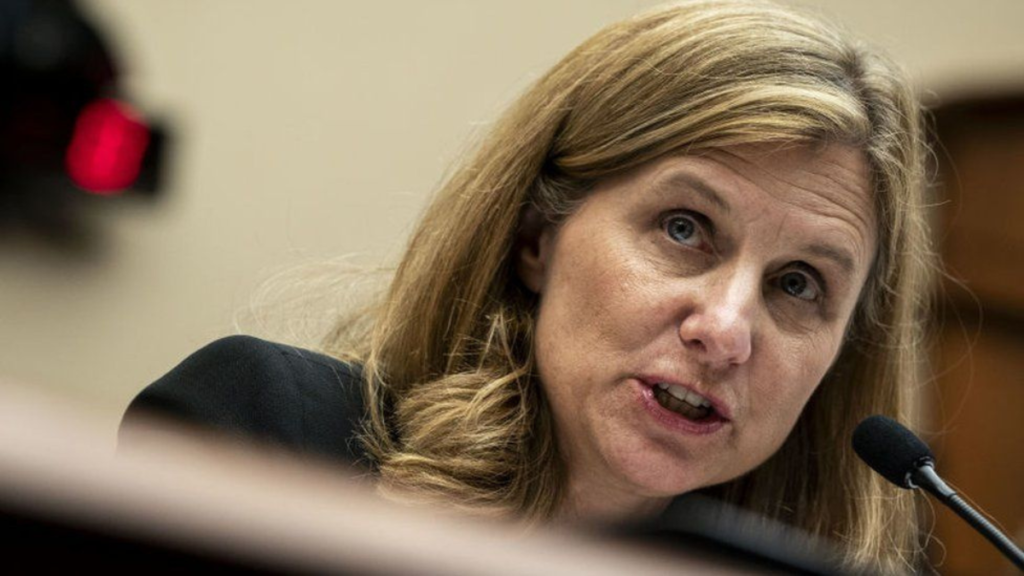Elizabeth Magill, the president of the University of Pennsylvania, has resigned following a controversial Congressional testimony on antisemitism. Magill and her peers faced questioning from Congresswoman Elise Stefanik, who questioned whether calling for the genocide of Jews would violate the university’s code of conduct or rules on bullying and harassment. Magill and her peers repeatedly asserted that the appropriateness of such calls depended on the “context.” The White House expressed disapproval, and a major university donor withdrew his support. Two Jewish students at the University of Pennsylvania filed a lawsuit alleging the campus had become a breeding ground for “virulent anti-Jewish hatred, harassment, and discrimination.” Magill’s resignation was voluntarily accepted by the university’s trustees, who confirmed her departure. In a statement, Magill expressed gratitude for her time as president but did not delve into the specifics of the controversy. The university now faces the challenge of rebuilding its reputation and mending relationships with donors.
The Congressional Hearing and Backlash:
On December 5th, 2023, Magill, alongside her counterparts from Harvard and MIT, faced questioning from Congresswoman Elise Stefanik. The crucial inquiry focused on whether calling for the genocide of Jews would violate the university’s code of conduct or rules on bullying and harassment. Instead of providing a clear and unequivocal response, Magill and her peers repeatedly asserted that the appropriateness of such calls depended on the “context.” This stance drew severe criticism, as many expected a straightforward condemnation of any calls for genocide.
Apology and Continued Pressure:
Following the controversial testimony, Magill released a video statement offering an apology for her remarks. However, the apology did little to quell the growing discontent. The White House expressed its disapproval, and a major university donor, set to contribute $100 million, withdrew his support, citing being “appalled” by Magill’s comments.
Legal Action and Campus Atmosphere:
The situation further escalated when two Jewish students at the University of Pennsylvania filed a lawsuit, alleging that the campus had become a breeding ground for “virulent anti-Jewish hatred, harassment, and discrimination.” This legal action underscores the severity of the concerns surrounding antisemitism on campus and adds to the mounting pressure on Magill.
Financial Ramifications:
The financial repercussions of Magill’s controversial tenure have been swift and severe. The loss of a substantial donation and the potential for further financial fallout highlight the tangible consequences of the controversy. The university now faces the challenge of rebuilding its reputation and mending relationships with donors who may be hesitant to support an institution embroiled in such a divisive issue.
Trustee Meeting and Resignation:
Reports suggest that the university’s trustees were scheduled to convene to discuss Magill’s position, indicating a significant level of internal scrutiny. However, before the meeting could take place, Magill decided to resign voluntarily. Scott L. Bok, the chair of the Penn board of trustees, confirmed her departure, noting that Magill would step down as president but retain a position as a tenured faculty member at Penn Carey Law.
Magill’s Statement:
In a statement released through the university after her resignation, Magill expressed gratitude for the opportunity to serve as president. She stated, “It has been my privilege to serve as President of this remarkable institution. It has been an honor to work with our faculty, students, staff, alumni, and community members to advance Penn’s vital missions.” While expressing appreciation for her time as president, Elizabeth Magill did not delve into the specifics of the controversy that led to her departure.
Conclusion:
The resignation of Elizabeth Magill as president of the University of Pennsylvania marks a significant chapter in the ongoing debate over antisemitism on American campuses. The controversy surrounding her Congressional testimony has not only impacted the university’s reputation but also raised broader questions about the balance between free speech, academic freedom, and the responsibility of educational institutions to combat discrimination. As UPenn begins the process of finding a replacement, the focus will undoubtedly be on healing the wounds inflicted during this tumultuous period and addressing the larger issues of intolerance within academic settings.







